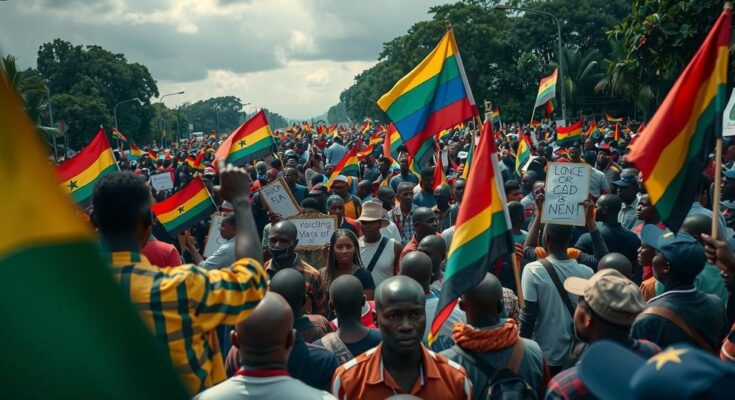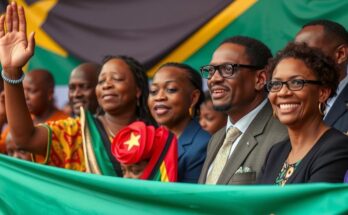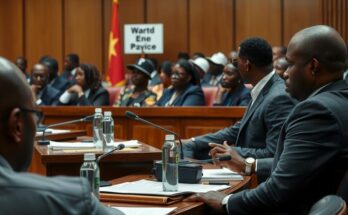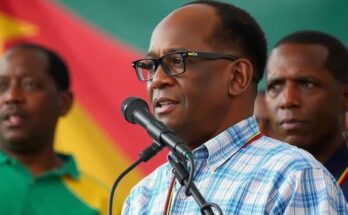Opposition leaders in the DRC have urged for nationwide protests against President Tshisekedi’s proposed constitutional reforms, fearing an attempt to remove term limits. Key figures such as Joseph Kabila and Martin Fayulu articulated this stance in a joint statement. The government has responded that discussions should remain apolitical and emphasized the president’s full term ahead.
In a significant political development, opposition leaders in the Democratic Republic of Congo have called for widespread protests against President Felix Tshisekedi’s initiative to amend the constitution. Following his re-election for a second and final term, President Tshisekedi announced plans to form a commission to explore potential constitutional revisions, sparking concerns that he may aim to eliminate term limits in order to extend his tenure beyond the current mandate. This initiative has drawn sharp criticism from key political figures who argue that it represents a maneuver to consolidate power. The opposition, led by notable figures such as former president Joseph Kabila, as well as former presidential candidates Martin Fayulu and Moise Katumbi, articulated their stance in a joint statement on Wednesday. They emphasized the need for public demonstrations to oppose the presidential plans, which they perceive as a direct threat to the country’s democratic framework. “We must block Tshisekedi,” they asserted, reflecting a growing unease regarding the president’s motives. The presidency, however, has refrained from responding to these allegations, with Communications Minister Patrick Muyaya asserting that there should be no question of the president’s intentions. He highlighted the necessity to approach discussions about the constitutional changes in a non-political context. “We must avoid attributing intentions to him,” he remarked, noting that the president has a full term ahead to focus on governance. This call for protests emphasizes the fragile nature of political stability in the Democratic Republic of Congo as various factions remain divided over the future direction of the country’s governance and constitutional integrity. Opposition critics warn that any attempt to alter the constitution could initiate a backlash that further complicates an already tumultuous political landscape.
The Democratic Republic of Congo has a history of political unrest and controversial governance issues. The current constitution, ratified in 2005 following a referendum, established term limits to prevent prolonged leadership. However, recent political dynamics under President Tshisekedi, who began his current term in January, have raised concerns among opposition parties that potential constitutional reforms may be aimed at eliminating these limits. This situation has prompted a critical response from various political leaders who are vigilant about preserving democratic principles within the nation.
The call for protests against President Tshisekedi’s proposed constitutional reforms reflects deep-seated tensions in the Democratic Republic of Congo’s political realm. With prominent opposition figures rallying for public demonstrations, the situation underscores the fragility of democratic practices in the country. Maintaining the integrity of constitutional provisions like term limits remains a central concern, as political factions navigate the future trajectory of governance in the DRC.
Original Source: www.usnews.com




